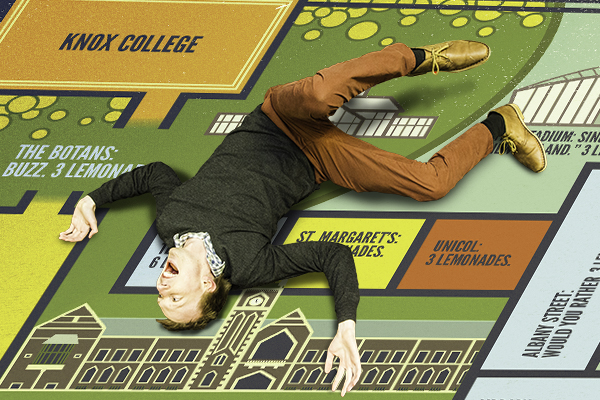In 2009 the University Council banned all alcohol advertising from campus. The memorandum circulated to the members of the Council by then-Vice-Chancellor David Skegg before the ban was voted on was a spectacularly patronising and hyperbolic piece of propaganda, which nonetheless had the desired effect. Skegg also oversaw the introduction of Campus Watch and the Code of Conduct, both of which have made campus immeasurably safer at night but also come armed with petty anti-alcohol powers.
Skegg’s ham-fisted approach definitely rubbed students up the wrong way. We have a new Vice-Chancellor now in Harlene Hayne. Hayne is far more flexible than Skegg, far more willing to engage with students and OUSA, and far savvier. If Skegg was the haughty patriarch, Hayne is the smiling assassin.
This is nothing personal against Hayne – she’s actually lovely – but she is playing the long game here, and she’s very good at it. Students are less likely to get up in arms about the slow death of Scarfie culture if they don’t feel as though the University is actively killing it. The odd slip aside (such as her comment that “in an ideal world” people would study instead of going to the Hyde Street keg party), Aunty Harlene puts people at ease. In doing so, she is having a far great impact on student drinking culture than any previous Vice-Chancellor.
Of course, what is meant by “Scarfie culture” should be up for debate, and simply equating the culture with alcohol is damaging and narrow-minded. But just as many students need to learn moderation in their drinking, so should the Uni learn that young people need balance in their lives and a range of experiences, including occasional, unbridled hedonism. By all means, make it safe and supervised – but shutting down our pubs is the wrong approach entirely.
A side note: for some reason, the Dunedin Craft Beer and Food Festival has slipped through the alcohol advertising ban. Just goes to show that the Uni’s okay with piss so long as it’s suitably gentrified.
On a completely unrelated topic, we’re excited to introduce the Critic board game to help warm up your flat! The board can be found on the front and back covers of this issue. The game is designed for at least four people, and rounds are expected to last 15-30 minutes. Please feel free to be creative with the rules, and tweak them as you see fit!
Required equipment:
- One die (if you don’t have a die, you can use a random number generator online or download a dice app for your phone).- A piece for each player.
- Large quantities of lemonade.
Rules:
- Players can move in any direction, but cannot move in more than one direction on the same turn.- The winner is the player who has drunk the most lemonade when the game ends.
- The game ends when one player has jumped over every other player. When this happens, the player in question drinks 10 lemonades, and the winner is decided.
- A player jumps over another player when they land on or move over a square containing the other player’s piece.
- The game can be played either with a reward system (e.g. landing on a square that reads “3 lemonades” means you are allowed to drink three lemonades) or an allocation system (“3 lemonades” means you tell another player to drink three of their lemonades).
- Each player picks a “home” square from one of the four corners of the board (Knox, Queen’s Gardens, High Street and Aquinas). Multiple players can choose the same home square.
- Players choose a “rule” for their home square. This can take the form of, for instance, a challenge or an action that a player must perform (e.g. drinking some lemonade, or removing an item of clothing).
- Whenever one player jumps over another, the latter is sent back to the former’s home square. When you are sent to another player’s home square, you must abide by the rule that they have chosen. If you refuse to do so, you must give away some of your lemonade.
- Players stay in the game after they have been jumped. They simply move out from their opponent’s home square in the normal manner.




